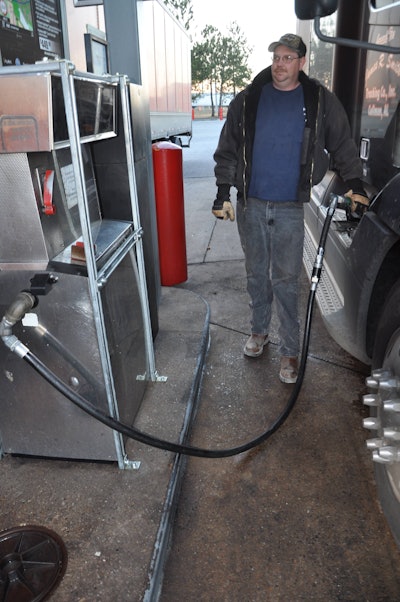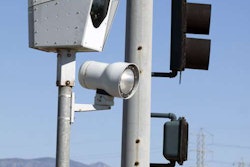A recent caller to my radio show said he and his friend had just finished a two-month test of how their driving habits affect fuel mileage.
Tests like this are often meaningless because there are too many variables to make good comparisons, but these two, driving trucks of similar specs, did it right. Each tracked fuel mileage closely for 30 days, then they switched trucks. Without making any other changes, they tracked fuel mileage again for 30 days, minimizing the difference in the trucks.
 It’s not unrealistic to see a spread of $16,000 a year in fuel costs between an operator who’s careless with driving habits and one who is diligently monitoring miles per gallon and constantly trying new ways to improve that key measurement.
It’s not unrealistic to see a spread of $16,000 a year in fuel costs between an operator who’s careless with driving habits and one who is diligently monitoring miles per gallon and constantly trying new ways to improve that key measurement.The first driver, “Tom,” had a 30-day average of 7.71 mpg while driving his own truck. The second driver, “Ben,” had a 30-day average of just 5.83 mpg while driving his own truck.
Tom and Ben drove the other truck the same way that they always drove their own truck. They booked the same loads and weights as they had the previous 30 days. They drove in the same region, under similar weather conditions.
When Tom was driving Ben’s truck, the 30-day fuel mileage average increased to 7.17 mpg, a 23 percent increase over what Ben achieved driving it. At the same time, Ben’s 30-day fuel mileage average in Tom’s truck was 6.38 mpg, a 17 percent loss relative to Tom’s average in that truck.
To put the percentages into perspective, with Ben in his own truck his annual fuel bill would be $85,763 based on 125,000 miles and $4 per gallon. With Tom in Ben’s truck, his annual fuel bill would be $69,735, a savings of $16,028.

Even accounting for some variables, there was a solid 20 percent difference in fuel economy based on driving habits. Many callers to the show didn’t believe the results. However, industry tests have shown for years that the difference in fuel economy between the best drivers and the worst can be as much as 30 percent.
What habits account for such a wide spread? Typically it’s many things: speed, idling, cruise control, shifting, acceleration and deceleration, route planning and other aspects. In March, I’ll give you instructions on how such driving habits can enable you to improve your fuel mileage.
The first step toward better driving habits
To determine how much certain practices affect your fuel mileage, you need to track that number closely:
- Establish a standard for your fill-up. Make sure the truck is level. Choose a spot at which you stop putting in fuel – the bottom of the filler neck, for example. Be consistent.
- Write down your odometer miles for the first fill-up. The next time you fill up, write down the odometer and the gallons added.
- Divide the gallons into the miles traveled since last fill-up to get miles per gallon.
For MPG trends to have meaning, make notes for each tank on what you’re doing differently, such as slower average speed or smoother acceleration or deceleration. Also note load weight, weather conditions, terrain and other external factors. Then analyze what affects fuel mileage.
Another approach is to use my free online tool at MyGauges.com. It will track your mileage on every tank, as well as 30-, 60-, 90-day and lifetime averages. You can enter information right from your smartphone.









